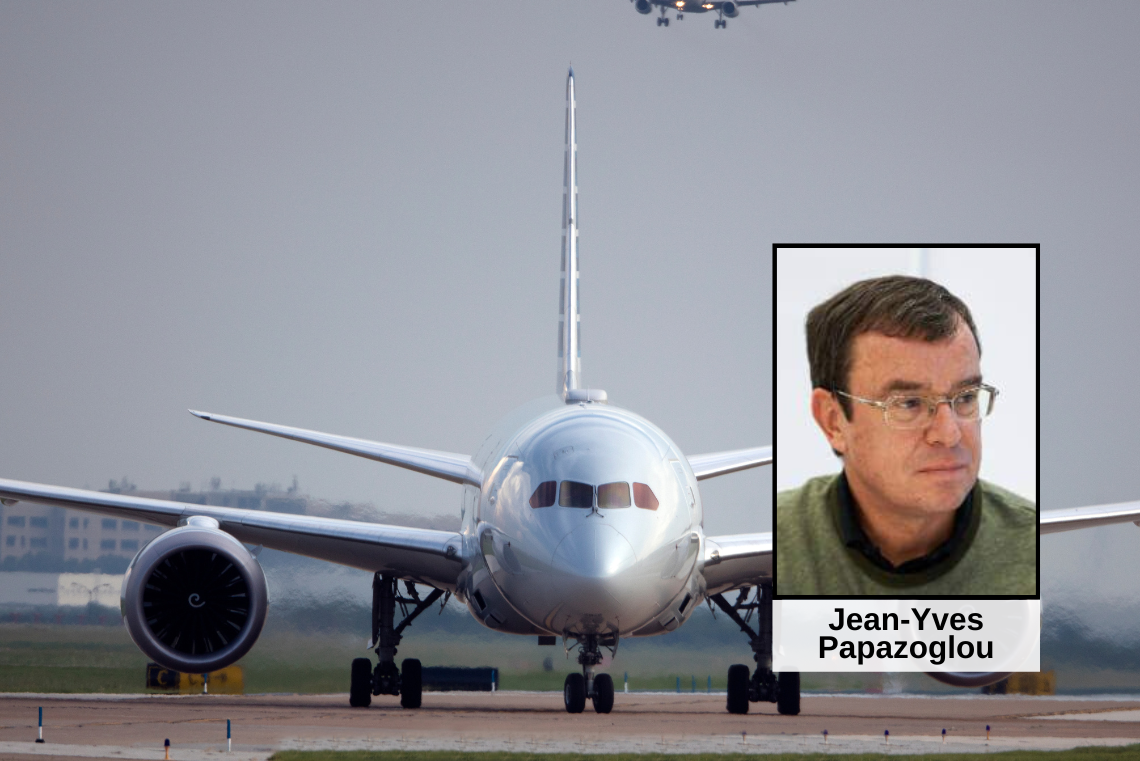Aviation business decarbonization: is it a dream?

After several years of crisis following the COVID19 pandemic, commercial air traffic is slowly returning to 2019 levels except in China due to the prolonged confinement policy throughout the country.
The commercial aircraft traffic is still expected to grow by 3.6% (cf. Airbus Global Market Forecast) in the next 25 years. Today, Aviation sector accounts for ~3% of CO2 emission. But it will increase in the future due to the traffic growth if nothing is done to drastically reduce CO2 emissions.
The recent historic agreement (October 5th 2022) reached by the Air Transport Action Group (ATAG) on a collective long-term aspirational goal of net-zero carbon emissions by 2050 is an outstanding first step in the right direction. ATAG is composed of the major aviation industrial manufacturers and suppliers, the airports and the airlines.
This commitment was then endorsed on October 7th 2022 by the International Civil Aviation Organization (ICAO is composed of 193 countries and is a United Nation organization)
Over the last 60 years CO2 emissions have been reduced by 80% thanks to increased engine efficiency, lighter airframe, better aerodynamic and improved fuel consumption during flights by the airlines driven by cost optimization. But further major steps ahead are needed to reach a net-zero CO2 emission goal by 2050.
As oil reserves are reducing because of the increasing extraction costs and the scarcity of new fields, a kerosene shortage at reasonable cost for the airlines is inevitable in the mid and long term. On top of that, taxes on kerosene will start to be applied at least by the EU which will make fuel costs higher in future for the airlines.
Hence, Airbus and Boeing are facing an enormous challenge to immediately initiate the decarbonization of air transport.
This is a question of survival for companies and the Aviation sector, and many new skills need to be developed, such as H2 production / transport / management, Sustainable Aviation Fuel (SAF), electrification, flight optimization, electric / hybrid engines, fuel standardization, etc.
It will lead to a complete worldwide recomposition of the aeronautic supply chain which will become more integrated vertically than it is today.
Also, to decarbonize aviation, huge investments in energy supply, new technologies, and airport infrastructure will be required. Would the countries be ready to finance such a transition for aviation at the same time as other industry sectors: iron & steel, chemical, residential, cement, services, light duty vehicles? Would private investors be ready to invest for a very long-term benefit?
A worldwide coordination for new aviation regulations, for standardization of the new energy sources would be mandatory between the countries. Only an organization like ICAO could play this facilitation role, provided all states support and strive for this effort.
The public and civil aviation authorities will not accept the high level of flight safety (probability of 0,00001% of an accident during a flight) would be degraded due to new technologies, new energy or new aircraft concepts. This is putting an additional challenge to the Aviation sector.
Obviously, there will be a strong contest between the different industry sectors for getting the priority of investments to produce cleaner energy. A massive increase of electricity production is expected and its costs will increase compared to today’s energy produced from fossil.
We can forecast that without huge investments worldwide of how to produce clean energy: i.e. renewables and nuclear energy (1g of Uranium is equivalent to 1t of petrol), the 2050 objective for aviation will not be met. A large-scale development of carbon capture companies would most probably contribute to achieving this goal for this sector.
The aviation sector has contributed to reduce CO2 emission and is the only industry sector which has already made a commitment for CO2 neutrality by 2050.
In fact, after the second World War, aviation was recognized in the Chicago convention on International Civil Aviation (Dec 7th 1944) as an essential activity to facilitate exchange between people all across the world thus contributing to peace and economic development.
Let’s hope that the collective intelligence of humans will create the conditions for our children to keep on flying safely and at the same time protecting our planet.
About CDI
Within the Aerospace and Defense Industry sector, CDI Global has experienced and dedicated partners who can identify and interview appropriate candidates on a face-to-face basis. We know confidentiality is vital. As an independent firm, we are free to approach potential candidates without prematurely revealing our client’s identity. CDI Global professionals have completed numerous search mandates and sell mandates in addition to fully realized mergers and acquisitions in the sector. Our structured and phased approaches are key to our historically high success rate for transactions in Aerospace and Defense.
By: Jean-Yves Papazoglou (Aeronautic Industry expert)

















































